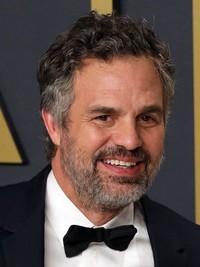Mark Ruffalo

Like many other actors who were tagged "best of a generation," Mark Ruffalo's roots were in theater and independent film where his honest, open character approach was applauded. His breakout stage role in Kenneth Lonergan's acclaimed "This Is Our Youth" led Lonergan to give Ruffalo the lead in his film directorial debut "You Can Count on Me" (2000), which earned countless festival awards and had critics buzzing about the little-known actor's subtle, compelling performance as a cerebral but aimless young adult with an arrest record and a pregnant teenage girlfriend. Hollywood came courting, but struggled with a tidy niche in which to put the darkly handsome actor; first offering him small but effective character roles as "conflicted" types in big budget thrillers like "Collateral" (2004) before unsuccessfully making the understated actor into a bland leading man in romantic comedies like "Just Like Heaven" (2005). Ruffalo eventually found an appropriate arena somewhere between the multiplex and the art house, favored by character-driven directors like Jane Campion, David Fincher, Steven Zaillian and eventually Martin Scorsese - all of whom capitalized on the actor's talent for believably disappearing into complex, empathetic characters.